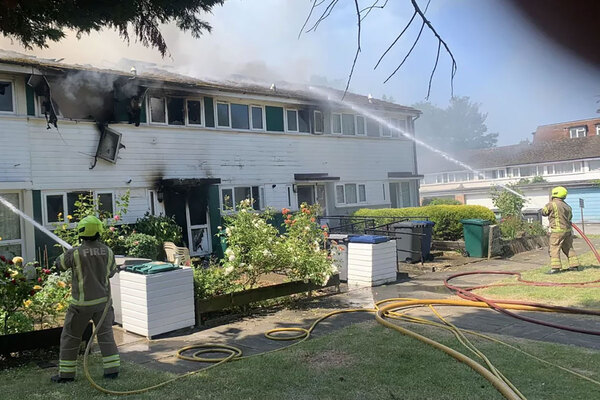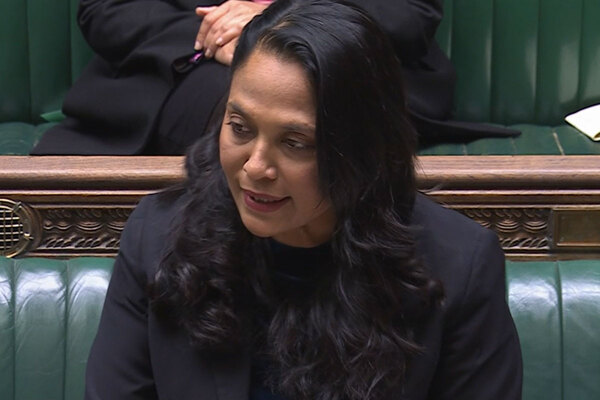You are viewing 1 of your 1 free articles
Transparency and accountability are essential in building trust, but how this is achieved is key
The intention behind the Stairs proposal is welcome, but it is missing the complexity of how social home providers will be able to produce this information and what residents actually want to know, argue Daisy Armstrong and Michael Verrier, chair and vice-chair of the G15 Residents’ Group
The government’s consultation on Social Tenant Access to Information Requirements (Stairs) is the latest development in a long-running debate on how landlords can improve transparency for housing association residents.
The G15 Residents’ Group was established to be influential in resident-led sector change and to reform sector strategies, including in transparency and accountability. The newly formed group is unique, made up of G15 involved residents who have housing sector knowledge, as well as experience of being socially housed.
This provides a balance of opinions that can be used to formulate practicable and meaningful sector solutions.
The Stairs consultation response of the G15 Residents’ Group marks the start of our efforts to achieve this. We use a method that encourages open and honest discussions, resulting in a write-up of key themes and views, and ensuring that residents’ perspectives and priorities are effectively voiced.
This forum is representative of the residents and their communities living in the 777,000 social homes managed and provided by the G15 landlords.
As a result of our Stairs meeting, it became clear that our members’ top priority is improving the accessibility of information available to residents. However, more information is not necessarily better; it must be concise, clear and relevant to us.
“Consider the variety of languages spoken by social housing residents; a significant number do not speak English as their first language. Information must be accessible and comprehensible to be effective”
Additionally, we considered the practicality of these proposals, including resource capabilities and financial implications. Our belief was that the sector is facing significant financial pressures, and the push for transparency should not come at the expense of efficiency. Smaller associations could find the resource squeeze particularly challenging.
It became clear from the G15 Residents’ Group members that prioritising better-quality delivery of services and homes is more meaningful for us and our communities.
The group’s discussions produced a conflicted view. While we support the principles of transparency and accountability, we have concerns about the costs, bureaucracy, consistency, accessibility and regulation of the required information.
Overall, we believe that implementing the Stairs proposals could have unintended consequences. Instead of empowering residents, it could overload housing associations and undermine their desired outcomes.
The group’s discussions considered numerous factors regarding the implications of implementing the Stairs proposals before making judgements on each question.
On access to the information, consider the variety of languages spoken by social housing residents; a significant number do not speak English as their first language. Information must be accessible and comprehensible to be effective.
Of equal importance is relevance – not every piece of data is useful for every resident. The question housing associations must ask themselves is: how does sharing this information benefit residents in resolving their issues?
Overloading residents with information can obscure important points rather than clarify them. Much of the data housing associations publish about their performance is already reported to regulators, included in annual reports and presented to their engaged residents.
Instead, information should be filtered and presented in a way that makes sense for each resident, whether by location, housing type or specific issue. This will ensure that residents get the information that truly matters to them.
“Given the potential impact of Stairs on landlords and residents alike, we would recommend piloting the scheme before a full roll-out, to assess its practical implications”
As a group, we welcome the government’s focus on driving up standards and believe it must consult more extensively with residents to understand what information is most relevant, and with housing associations to understand how it can be standardised across different organisations.
Our group identified two critical categories for prioritisation: spending and housing services. For example, transparency around the use of service charge revenue and the handling of complaints directly impacts residents’ daily lives and financial well-being. These areas were of high concern for members and should be top priorities for disclosure.
Given the potential impact of Stairs on landlords and residents alike, we would recommend piloting the scheme before a full roll-out, to assess its practical implications and determine if it offers good value for money. The final regulation should listen to feedback from residents and housing associations to help it achieve its desired outcomes. Ignoring these voices would be a missed opportunity to deliver the cultural changes and service improvements that we know are needed in social housing.
By genuinely engaging with the people who live in social housing, the government can create a more effective, empowering and transparent policy. It’s not just about more information. It’s about better information that truly serves the needs of residents.
Daisy Armstrong and Michael Verrier, chair and vice-chair, G15 Residents’ Group
Sign up to the Inside Housing Communications Conference 2024
With an upcoming election, and a raft of regulatory changes within the Social Housing (Regulation) Act aimed at improving communication between landlords and tenants, housing communicators are navigating a multitude of priorities in an ever-changing environment.
Join over 250 communications professionals and hear from 50 speakers across three content streams covering both internal and external communications. The conference will explore how to influence key stakeholders and deal with emerging issues in a transparent and empathetic way to improve the lives of those in our communities.













